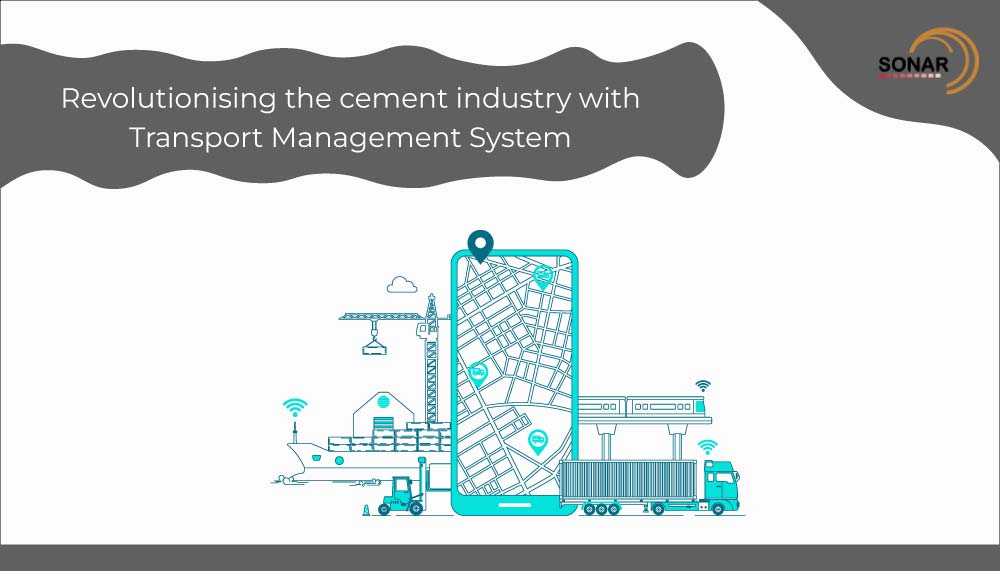Transportation has always been an essential part of the cement industry in Australia. It is a critical aspect of the supply chain and plays a significant role in ensuring the timely delivery of Cement to its final destination.
However, traditional transportation management systems have been cumbersome, time-consuming, and prone to errors. Fortunately, with the advent of Transport Management Systems (TMS), the cement industry in Australia is undergoing a significant revolution. In this blog, we will explore how Transport Management Systems are transforming the cement industry in Australia and the impact of this transformation.
Before we dive into the role of TMS in the cement industry, let’s take a quick look at what TMS is all about. Transport management software Australia solution helps companies optimize and manage their transportation operations. It is designed to streamline transportation, from planning and scheduling to execution and delivery. A TMS provides a single platform for managing all transportation activities, including route optimization, freight management, load planning, carrier management, and more.
According to a report by Gartner, the global TMS market is expected to grow at a compound annual growth rate (CAGR) of 7.8% between 2021 and 2026. The report also highlights that adopting TMS has been particularly significant in the manufacturing and retail sectors, where transportation is critical in supply chain management. In the cement industry, implementing TMS has brought significant improvements in transportation efficiency, cost savings, and customer satisfaction.
1. Improved Transportation Efficiency
One of the critical benefits of TMS in the cement industry is improved transportation efficiency. With a TMS, companies can optimize their transportation routes and schedules, reducing empty miles and minimizing delivery time. This optimization results in improved resource utilization, reduced fuel consumption, and lower transportation costs. According to Forbes, companies implementing TMS can reduce transportation costs by up to 30%.
2. Timely delivery of Cement
TMS helps companies ensure the timely delivery of Cement to their customers. With real-time tracking and monitoring, companies can keep track of their deliveries and make necessary adjustments to ensure on-time delivery. This is particularly important in the cement industry, where delivery delays can have significant consequences. The ability to track and monitor deliveries in real-time also helps companies proactively address any issues that may arise, such as route disruptions or weather-related delays.
3. Customer satisfaction
Another benefit of route optimization software in Australia in the cement industry is improved customer satisfaction. With real-time visibility into delivery schedules and status updates, companies can keep their customers informed and updated about their orders. This level of transparency and communication builds trust and enhances customer satisfaction. According to a report by Gartner, companies that implement TMS can improve their customer satisfaction rates by up to 25%.
4. Improve their safety standards.
In addition to these benefits, TMS also helps companies in the cement industry improve their compliance with regulations and safety standards. With a TMS, companies can ensure that their transportation operations comply with regulatory requirements, such as weight restrictions, driver hours-of-service limits, and safety regulations. This compliance helps companies avoid fines and penalties and enhances their reputation as responsible corporate citizens.
Conclusion
The cement industry in Australia has been quick to adopt TMS, recognizing the significant benefits it can bring to their operations. According to a report by Forbes, the adoption of TMS in the cement industry in Australia is expected to grow at a CAGR of 8.6% between 2021 and 2026. The report also highlights that the increasing demand for Cement, coupled with the need for more efficient transportation, is driving the adoption of TMS in the industry.
The impact of TMS on the cement industry in Australia has been significant. Companies implementing TMS have seen improvements in transportation efficiency, cost savings, and customer satisfaction. The adoption of TMS in the cement industry in Australia is expected to continue to grow, driven by the increasing demand for Cement and the need for more efficient transportation.
In conclusion, Transport Management Systems are revolutionizing the cement industry in Australia. TMS solutions such as the one offered by Sonar technologies provide companies with the tools to optimize their transportation operations, reduce costs, and improve customer satisfaction. The adoption of TMS in the cement industry in Australia is expected to continue to grow, driven by the significant benefits it brings to companies’ operations. As the market for TMS continues to grow globally, the cement industry in Australia can expect to see further innovation and advancements in transportation management. So why don’t you take advantage of the one-month free trial and see how the Sonar TMS solution can benefit your business?
Contact us to get a one-month FREE trial.

